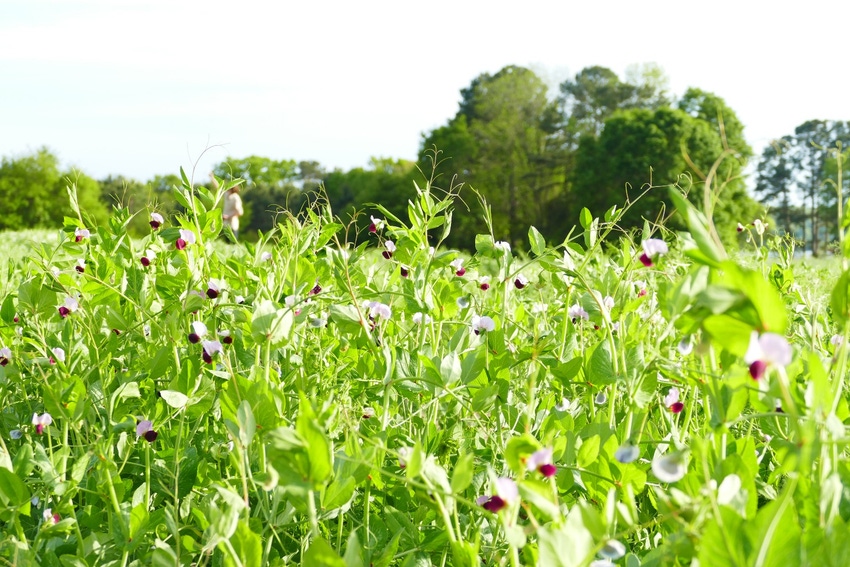
The Clemson Organic Plant Breeding Institute continues its “Going Organic” webinar series to teach farmers how to produce nutritional legumes and save money.
This series is free. Registration is requested. Updates and information for future webinars will be posted on the Clemson University Organic Plant Breeding Institute webpage: https://bit.ly/OrganicPlantBreedingInstitute
Speakers are scheduled to speak monthly through April 2023. This series is part of a United States Department of Agriculture National Institute for Food and Agriculture-funded grant project.
Speakers and the title of their presentations for the 2022-2023 Clemson Going Organic Webinar Series are listed below. All sessions begin at 10 a.m.
Oct. 26 – , George Vandemark, research geneticist, USDA, “Chickpea breeding and management.”
Nov. 16 – Matthew Blair, molecular geneticist/plant breeder Tennessee State University, “Bean/Mung Bean breeding and management.”
Dec. 7 – Diego Rubiales, Institute for Sustainable Agriculture, CSIC, at Cordoba Spain, “Pulse breeding and management.”
Jan. 18, 2023 – Jeff Schoenau, University of Saskatchewan College of Agriculture and Bioresources, “Pulse crops fertility management and organic soil health tips.”
Feb. 22, 2023 – , Susan Whiting, University of Saskatchewan College of Pharmacy and Nutrition, “Benefits and ‘perceived’ risks of pulse consumption: examples from the Global North and the Global South.”
March 29, 2023 – Hannah van Zanten, Cornell University Department of Global Development, “From linear to circular food systems.”
April 19, 2023 – Jeff Rumney, USA Dry Pea and Lentil Council, “Pulse crop marketing and opportunities.”
Organic farming sometimes has a bad reputation for producing legumes with lower nutritional quality. But researchers in the Clemson Organic Plant Breeding Institute believe field peas and lentils can be grown organically and still have improved nutrient quality. The organic pulse breeding program is led by Dil Thavaraiah and her team, including retired soybean breeder – Emerson Shipe, Shiv Kumar Agrawal and project manager Tristan Lawrence.
Their goal is to develop cultivars suitable for the Southern climate, especially South Carolina and North Carolina organic production systems.
Thavarajah, project lead investigator and a Clemson professor of pulse quality and organic nutritional breeding, said this research is needed because consumer demand for organically grown plant-based protein is increasing. The team is in the process of last stages to developing organic dry pea cultivars suitable for South Carolina.
“These cultivars are not only adapted to low input organic system but also rich in protein, prebiotic carbohydrates and micronutrients,” Thavarajah said.
These cultivars were developed based on on-farm selections from W.P. Rawl and Sons in Pelion, South Carolina and at the Clemson Organic Research Center’s Calhoun Fields Laboratory and Cherry Farm.
“Organic plant-based proteins are popular because they are a clean source of protein without added chemicals,” Thavarajah said. “But organically grown pulse crops have lower protein content levels and are more expensive. During this study, we want to determine how to develop protein-biofortified organic pulse cultivars that will lead to economically rewarding sustainable organic farms, especially in the Carolinas.”
Both field pea and lentils are pulse crops. Thavarajah and her team have been testing three new pulse crop cultivars – lentil, dry pea and chickpea – for South Carolina organic production. The new dry pea cultivars will be released within the next two years.
Pulses are called “poor man’s meat” because they are rich in nutrients, such as proteins, but do not cost as much as meat. Among the objectives of this project are developing protein-enriched organic field pea and lentil varieties and providing on-farm Cooperative Extension Service educational activities.
Source: Clemson University, which is solely responsible for the information provided, and wholly owns the information. Informa Business Media and all its subsidiaries are not responsible for any of the content contained in this information asset.
About the Author(s)
You May Also Like






